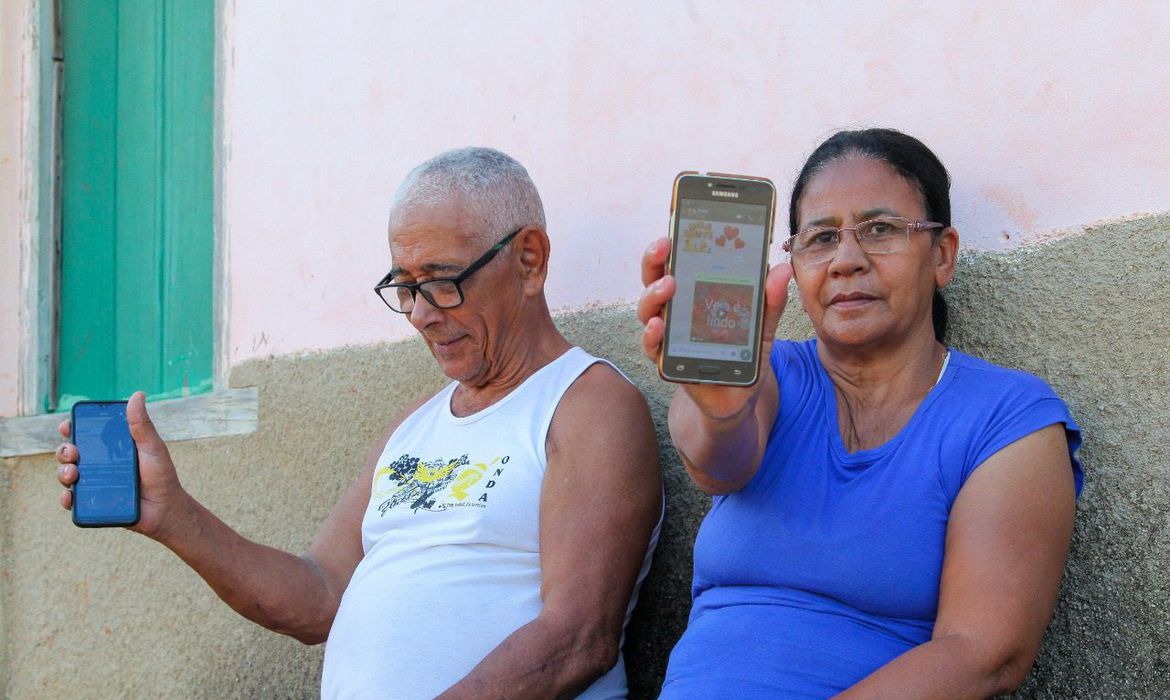
Credit: Disclosure / Ascom MCom
Legislation provides for allocation of resources for connectivity
President Jair Bolsonaro signed the law that updates the possibilities of using the Telecommunications Services Universalization Fund (Fust) to allow government telecommunications policies to be financed with these resources.
Originally created for the diffusion of fixed telephony, Fust money will now be able to finance projects that promote the democratization of the internet and new technologies.
The bill passed for 13 years in the Legislative Houses and, with the action of the Ministry of Communications, it was approved by the Senate, with 69 votes in favor and one contrary, in the last month.
According to the ministry, with the change in the rules, the Fust may be used to expand or implement connection services, providing, among others, internet access to ranchers, farmers, rural schools and low-income families that, today, do not have access to the internet.
With the new Law, Fust can be used not only to improve the quality of networks and services, but to reduce regional inequalities in telecommunications and to promote the use of new connectivity technologies. Both public and private services may receive funds from the fund.
For the ministry, one of the sectors most benefited will be agribusiness, since producers will start to count on the modernization of cultivation, management and harvesting with the help of systems dependent on the internet.
“Fust will be able to bring internet to producers who are in regions far from large urban centers and create smart farms, using autonomous tractors, drones and harvesters connected to wireless networks. In addition to favoring a significant expansion of agricultural production, modernization in the countryside will generate millions of direct and indirect jobs ”, celebrated the Minister of Communications, Fábio Faria.
Investment
As for the financing modality, part of Fust's annual revenues may be applied in the form of non-refundable support, that is, the money will be used for investment in telecommunications. There is also the reimbursable form, in which financial agents, such as the National Bank for Economic and Social Development (BNDES) and the Financier of Studies and Projects (Finep), can use the fund's resources to carry out credit operations to finance telecommunications projects.
The law also provides for the creation of a guarantee fund. Thus, small providers, who do not have assets to pledge and, as a result, find it difficult to obtain financing, will have the support of Fust to have access to credit lines.
Management Council
The text sanctioned by President Jair Bolsonaro provides for the creation of a Management Council for Fust, linked and chaired by the Ministry of Communications, in order to ensure agility in the implementation of public policies aimed at expanding infrastructure and expanding services.
The Management Council will be composed of one representative from each of the following ministries: Communications; Science, Technology and Innovations; Economy; Agriculture, Livestock and Supply; Education; Health. There will also be a representative from the National Telecommunications Agency (Anatel) and two from the telecommunications service providers (one of them from small providers), in addition to three members of civil society.
Fust
The Fund was established by Law No. 9,998, of August 17, 2000, with the objective of universalizing telecommunications services in regions that, for reasons such as low demographic density, low income of the population, lack of adequate infrastructure or others, do not offer a viable rate of return for investments by companies in the sector.
The main revenues that make up the fund are the contribution of one percent of gross operating revenue, resulting from the provision of telecommunications services in the public and private regimes and the transfer of resources from the Telecommunications Inspection Fund (Fistel).
* With information from the Ministry of Communications.
Source: Portal ABES with Agência Brasil













